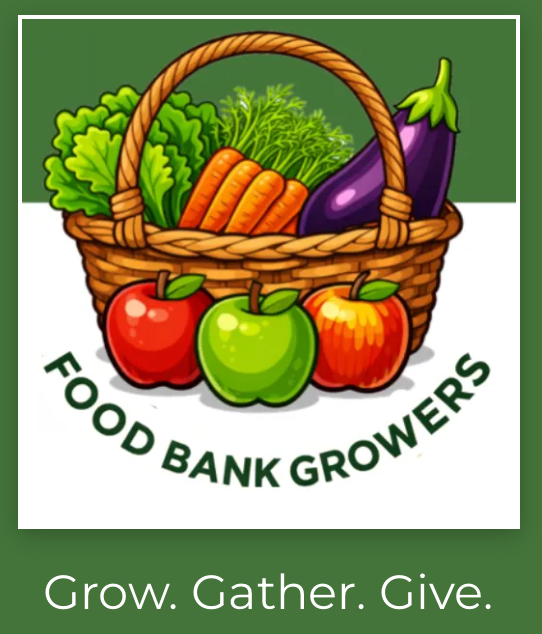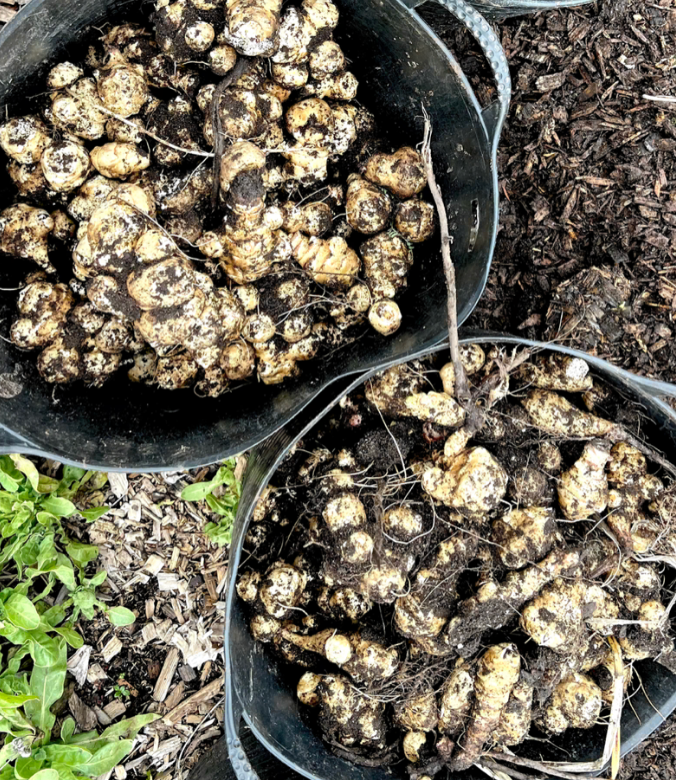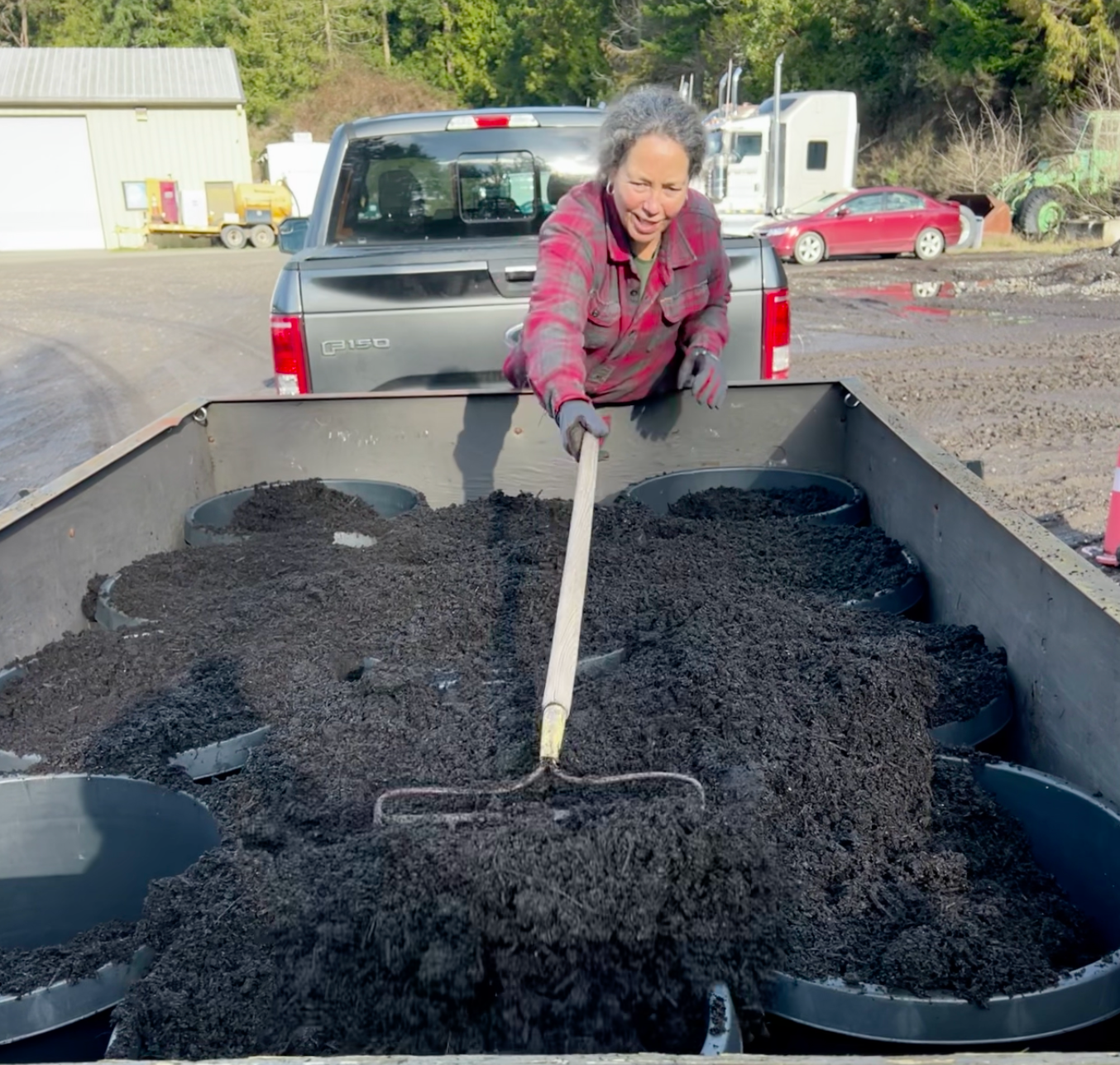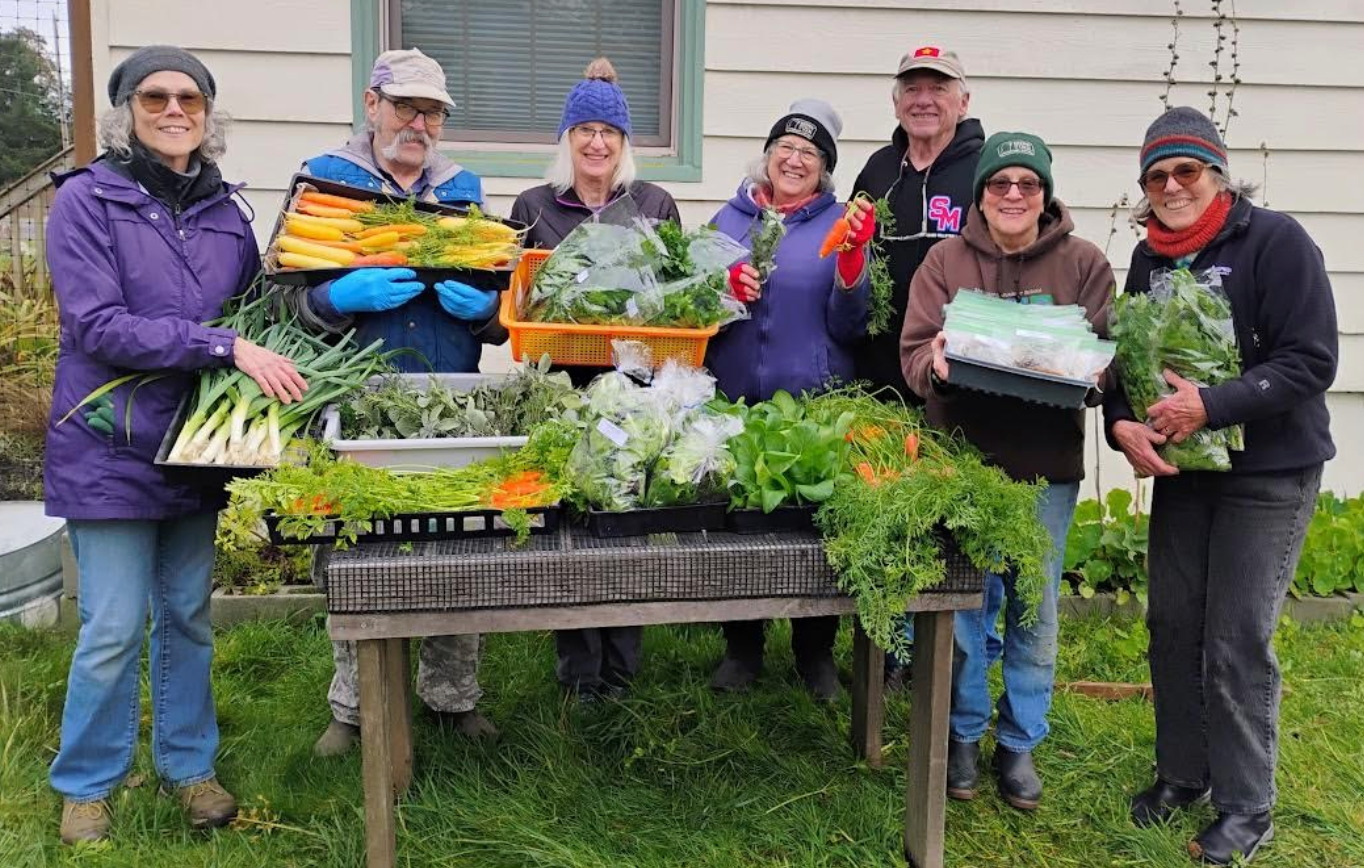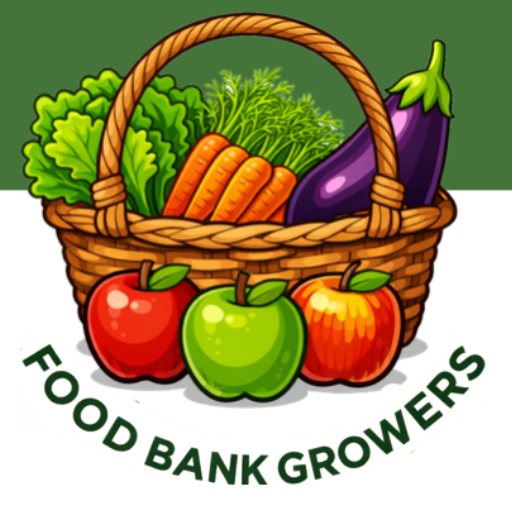November 2025 Newsletter
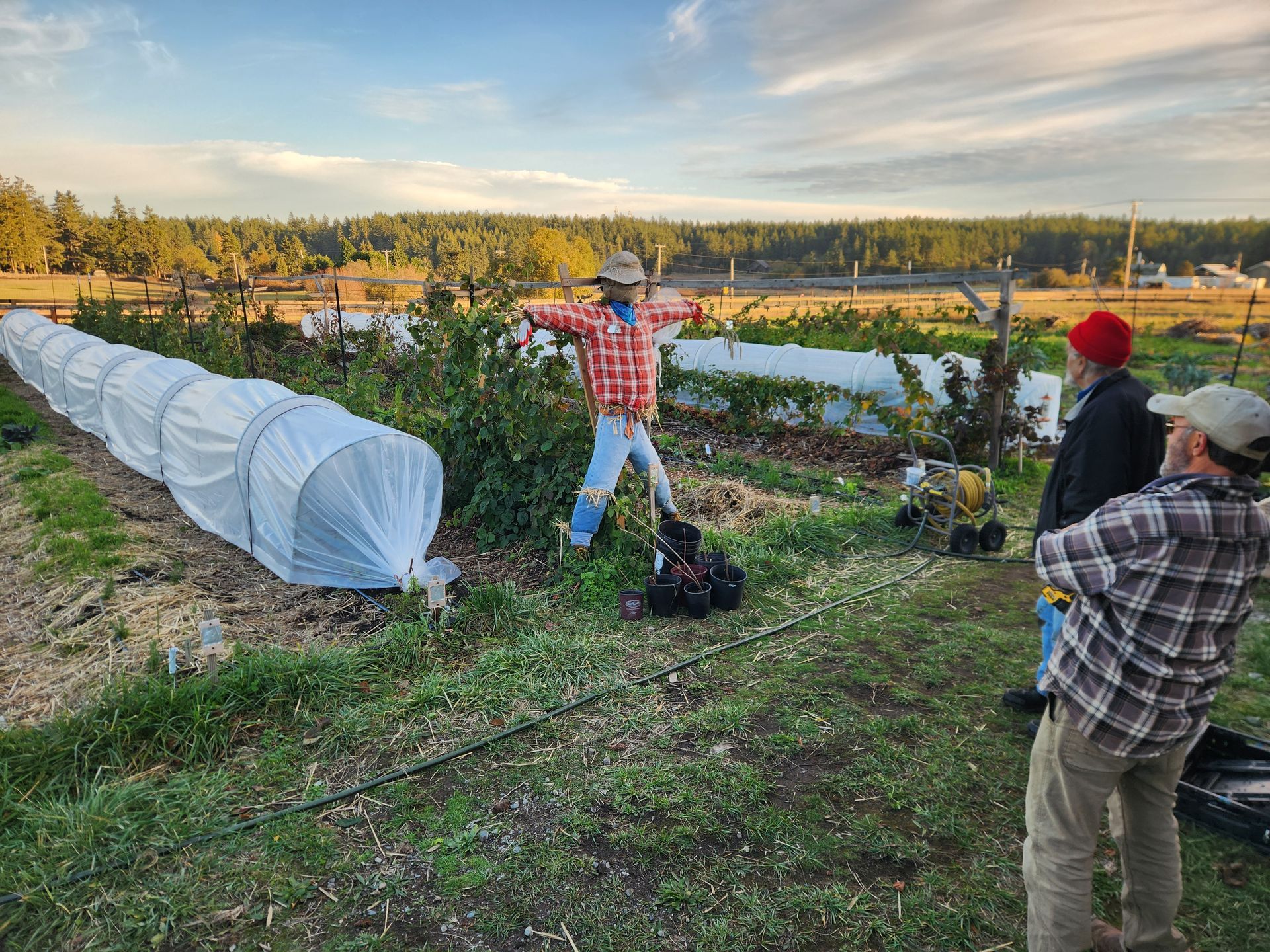
Tucking in for winter...
In this month’s newsletter...
- FBG Annual Planning Retreat
- Harvest & Gleaning Pounds, Plant Starts, and Hours
- Events and Announcements
- Food for Thought - Preserving Herbs
- Volunteer Thank You Dinner and Cider Sunday
- KPTZ In the Garden Podcast
- Apple SAUCING!
- Hoop de DO!
- November In the Garden with Dianna
FBG Annual Planning Retreat
November 8th (Saturday) from 9 am to 3 pm
at the WSU Extension Office, 121 Oak Bay Road.
Open to all who care about growing for food security in 2026.
Bring your ideas and a salad to share.
Questions? Email FoodBankGrowers@gmail.com
YEAR-TO-DATE STATS
21,672.27 Pounds of Grown Produce
14,114 Pounds of Gleaned Produce
1,472 Plant Starts Given Away
6892 Volunteer Hours
Wow! All of the above from a little over 2 acres of garden space and lots of backyard orchards that would have just fed deer. And… we’re not done, the winter lettuce, spinach, and other brassicas is just getting started.
_______________
FOOD FOR THOUGHT:
Beating the Cold & Flu Season:
Boosting Immunity using Medicinal Herbs with Denise Joy, Mountain Spirit Herbs.
Free presentation
Tuesday Nov 11 - 6:30-7:30 p.m.
Quimper Grange - 1219 Corona Ave, Port Townsend
Celebrating her 40th year as sole proprietor of Mountain Spirit Herbals, Denise will be discussing a variety of herbal remedies for boosting our immune systems and to help with symptoms of colds and other seasonal ailments. She grows nearly all the herbs that she uses in her teas, tinctures, oils and balms. A limited supply of “Kick-Ass” will be available to purchase at the talk for $20 (cash).
Free presentation at
Quimper Grange, 1219 Corona Ave PT
Doors open at 6:15. All are welcome - the Grange has ADA access.
Food For Thought, a free series offered by the Quimper Grange #720, examines ‘’all things food & growing” in our area. For 100+ years, this Grange has supported the Jefferson County community through public programming, concerts, dance, rental space, and a 7,000 ft² all-volunteer garden which donates produce to help food insecurity around our county.
Our volunteers are the best. Thank you for growing, gathering, and giving back to our community
Growers Volunteer Night highlights
Gleaners Cider Sunday highlights
In the Garden, with Julia Cordz, Barbara Faurot, Mary Beth Haralovich, and Dianna Wiklund.
The next show airs Thursday, from 6-6:30pm.
Apple SAUCING!!!
Each year the Gleaner Sauce Team squeezes our apple sauce for the schools. Read HERE about how they made 1,950 pounds of it.
Hoop de DO! How to install winter protection tunnels that can stand up to the winds.
Learn how to make your own tunnels here.
November in the Garden
By Master Gardener Dianna Wiklund
November looks to start off warm and wetter than normal. This is a La Nina year so we should be cooler and wetter for most of the fall/winter. Even though it is not starting off that way. Port Townsend averages between lows of 41.9°F and highs 48°F with about 2.9 inches of rainfall. We may see almost 2” in the first week, according to some predictions. What this means to our gardens is we need to have our soil covered. Whether you have planted a cover crop or are mulching you will need to have something in place so you don’t lose your topsoil. At this point even just spreading old sheets (cotton is best) or tarps (last resort) will help soil stay in place. If you are adding fresh leaves or straw you might want to put something over it to keep them from blowing away. Fencing works really well for this, just spread over the new mulch and maybe a board or rocks to hold it down.
Garden clean up.
November is a time to decide if you are going to let your garden sit over the winter with any plants still standing as food and habitat for winter birds or if you want to cover it up with mulch or, if our weather permits, cover crops.
There are good reasons for all the above three options as well as continuing to garden over the winter under hoop houses, cold frames and mulch surrounding your winter plants.
- Leaving your crops and weeds until spring provides a place for birds to feed all winter long. It also provides insects and small rodents a place to hide and burrow in for the winter. The drawbacks are that any weeds or other seeds can spread in your garden early in the spring. Also, it is unknown which insects are going to over winter and whether they are beneficial or not.
- Covering your beds with mulch is a good way to keep your soil in place during winter rains. It can also add nutrients depending on what you use for mulch. In the spring you can just make holes in it and put your transplants directly into it or direct sow in it.
- There is still time to plant a few cover crops in early November. They won't get very high but should take off in the spring depending on what type of winter we get.
The other things to consider in putting your garden to bed are:
Irrigation:
- Drain your water lines so they don’t freeze and break.
- Remove soaker hoses for the same reason.
- Bring in nozzles, connectors and timers.
Tools:
- Clean up your tools and put them away in a dry place for spring. Get the dirt off and possibly oil them to help keep the rust away.
- Gather in your cloches, pots and planting trays. Give them a good rinse or even a washing. Store them somewhere out of the way for early spring use.
Mulch:
Mulch can be many things depending on what you want to use it for. Mulch is an organic covering material mimicking fall leaves that protect young plants over the winter. It is the blanket that helps keep the ground warm and cozy then turns into the best possible seedling mix for the next generation to start in.
In the forest, seeds fall in late summer then the leaves come down and cover them. They are protected from heavy rainfall and winter’s cold. Then in spring, they have decomposed enough to allow the seedling to push through while providing what is needed for the seedlings to start growing. All winter they have gathered nutrients from passing critters. Gardeners try to mimic this with mulch in our gardens. Leaves or straw followed by compost provide what is needed all year long.
The above works best for annual plants. For perennials, try heavy mulches like wood chips and bark mimicking the fallen branches of winter that break down more slowly. The higher acid of the woody debris is better for acid loving plants like berry bushes.
Planting:
Most years we can still plant in early November but this year might be more limited due to heavy rainfall disturbing the seeds. A few things that can be planted now are;
- Garlic - Can still go in just make sure it is covered by a couple of inches of mulch. In this case, you can use well-aged manure or old compost as well as leaves and straw.
- Spinach and lettuce can be transplanted out. Direct seeding might not go very well.
- If you want to try to plant cover crops now, try fava, winter wheat, rye or field peas.
- Bare root trees and bushes can still go in and get a start before spring. Again, mulch them well.
Harvest
- After our first frost, which should be mid month, Brussels sprouts and sunchokes will be at their peak.
- Root vegetables can be harvested until the ground freezes.
- Greens will be fading out as the weather gets colder unless you have them under cover in a cold frame or green house.
- Winter squash should be cured and ready for storage.
- Apples and pears continue to ripen depending on variety, some sweeten up after the first frost.
November is all about the harvest and being thankful for all we have been able to grow and share this year. In good years and bad, there is something to be thankful for. Even a small harvest can be celebrated and large harvests can be shared around to help others.
I want to thank everyone who has shared out their harvests this year. More than ever this is a great time to celebrate that we have enough to share. Even if you didn’t grow enough to share this year, you can plan for what can be grown next year and increase the general productivity for our whole community. Thank you everyone for growing for others. You are a blessing.
Happy Gardening Everyone!
Dianna
Dianna's Garden Consulting
(360) 643-0090 - send a direct text
Give a man a fish you feed him for a day.
Teach a person to garden and you feed their whole community.
Everyone is Welcome
We’re so grateful for our volunteers! Feel free to join us and explore opportunities to grow, glean, or help remotely. Just let us know what interests you, and we’d love to get you involved!
